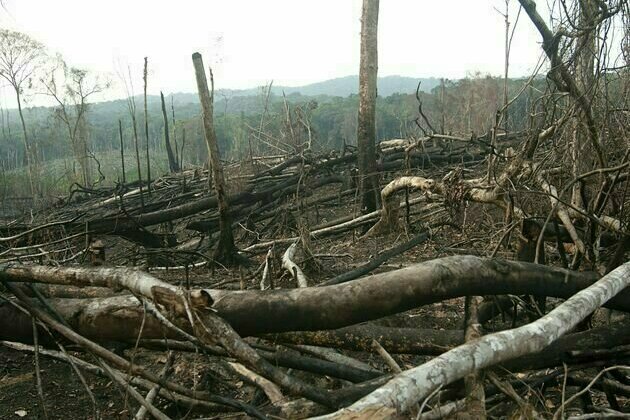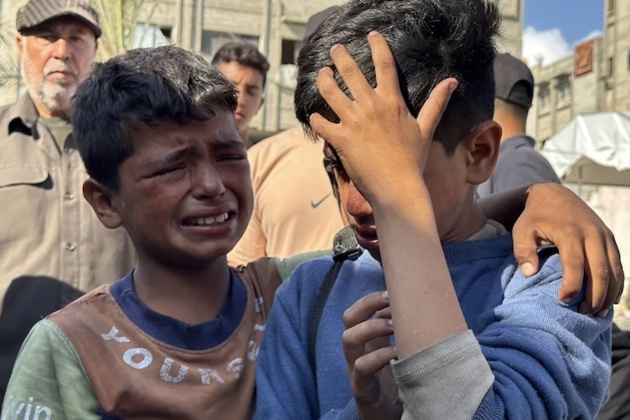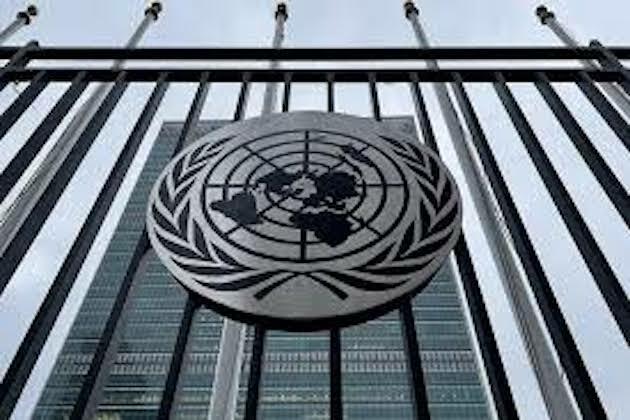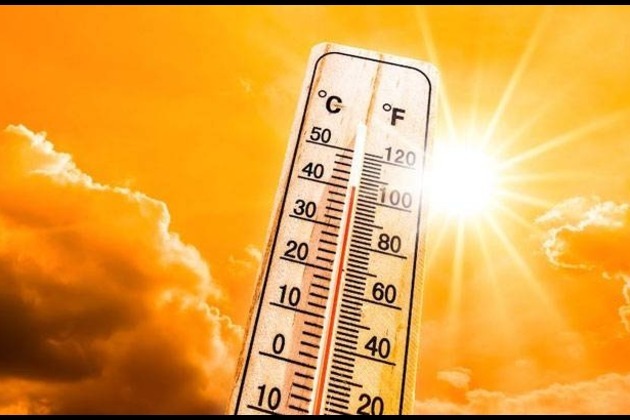Africa has the highest rate of forest loss in the world - what the G20 can do about it
The Conversation
03 Jun 2025, 15:06 GMT+10

Africa needs its forests for sustainable development, poverty reduction, food security, and to make the continent more resilient to climate change. They take up 23% of the continent. At 674 million hectares in extent, these forests occupy an area the same size as the Amazon rainforest.
But Africa has the highest rate of forest loss in the world. About 3.9 million hectares of African forest - the size of about 381 million soccer fields - was destroyed every year between 2010 and 2020.
Africa's forests are located in the tropical moist regions of central and parts of west Africa. They are dominated by the Congo Basin rainforest and the vast Miombo woodlands, a warm, dry forest area in southern Africa. Deforestation has been caused by the need for agricultural land, unsustainable fuelwood harvesting, logging, and mining.
As a forest ecologist who has researched tropical forests for 40 years, I have found that deforestation is impossible to fully eradicate. There are many reasons why forests are destroyed, including for financial gain or because it is required for development and cannot be avoided. This means that Africa's people and forests face an urgent crisis, which demands concerted action.
South Africa currently holds the presidency of the G20 - the group of 19 of the world's largest economies and the African Union. The theme of South Africa's 2025 G20 presidency - "Solidarity, Equality, Sustainability" - lends itself to finding solutions to forest loss.
As G20 president, South Africa should focus on mobilising finance to protect forests, championing sustainable agriculture and community forestry, and making sure that new technologies that protect forests are available to African countries.
Deforestation degrades land. This affects the most impoverished communities. It also disrupts water resources by reducing rainfall and making weather less predictable. Socially, it harms the 1.2 billion people globally who rely on agroforestry (growing crops in forests without harming the trees). These include rural communities dependent on forests for income, food and medicine.
An example of this is the deforestation of the Miombo woodlands. This is a 2.7 million square kilometre area of warm, dry forest in southern Africa. It loses over 1.27 million hectares yearly. In Mozambique, this has resulted an income loss of up to 92% for households who get their livelihoods from the Miombo woodlands.
Read more: Ghana's efforts to employ young people and regrow forests could work better
In the Congo Basin alone, about 37.1 million hectares of forest, or an area just smaller than Zimbabwe, was destroyed between 2000 and 2018. Deforestation and forest degradation aggravate the loss of biodiversity on the continent. When forests are destroyed, this also makes climate change more severe, because deforestation causes about 12% of all global greenhouse gas emissions.
Forest destruction makes poverty and food insecurity worse and sparks a cycle of degradation and reduced resilience. Health risks increase when people get poorer and have less food. Living on degraded land can also fuel instability and migration.
South Africa's G20 presidency is a first for Africa and its G20 priorities support a strong push against deforestation. The country has chosen to focus on:
sustainability
disaster resilience
mobilising finance for climate action and a just energy transition
funding sustainable land use
the United Nations' plan to reduce greenhouse gas emissions caused by deforestation.
All of these require that forests are restored and protected. South Africa's G20 presidency could link the ecological health of the continent's forests with economic progress and social equity.
The African Union, a full G20 member, can be a good partner. In 2013, it adopted the Agenda 2063 50-year plan for Africa. One goal is to ensure that all forests on the continent are protected, restored and sustainably managed.
South Africa's G20 leadership should adopt this versatile plan for the G20 to stop deforestation:
1.) The G20 Sustainable Finance Working Group needs a strong Africa focus. It should ensure that projects are put in place where communities and Indigenous peoples can work with nature to protect forests and get an equal share of the benefits that come from this.
2.) Boost G20 financial commitments to the Global Land Initiative (this aims to stop 50% of land degradation and restore 50% of damaged land to its natural condition by 2040).
Read more: South Africa has taken over the G20 presidency from Brazil - what lessons can it learn?
3.) It should promote debt-for-nature or climate swaps. These are where a bank or a government will reduce the debt it is owed by a country, as long as that country invests the money into protecting and restoring nature.
4.) The South African G20 presidency must develop carbon markets that benefit local communities. This is where polluting governments and private businesses in the global north will earn carbon credits that offset their carbon emissions, if they pay for forests to be restored in Africa.
5.) It must champion sustainable agriculture and community forestry. These are ways to set up resilient livelihoods for people living in or near forests. Clearing forests to make way for agricultural land is the main deforestation driver in Africa. G20 support is needed for climate-resilient, deforestation-free agriculture.
Read more: Technology and big data are helping Cameroonians protect their forests
6.) The South African G20 presidency should also bolster large-scale restoration initiatives like the African Forest Landscape Restoration Initiative, which plans to restore 1 million hectares of land by 2030, and the Great Green Wall (a planned 8,000km green corridor of restored land across 22 African countries, to be set up by 2030, creating 10 million jobs).
7.) Finally, the South African G20 presidency must make sure that countries get assistance with new technology, skills and ways of governing. For example, G20-Africa partnerships for forest monitoring technology can be set up using remote monitoring and artificial intelligence. It also means training more people across the continent in sustainable forestry and land restoration, and promoting good governance and oversight over agricultural supply chains to make sure that products are not being grown or made by destroying forests.
A "just transition" framework for land use change is crucial. This should create sustainable economic alternatives for forest-dependent communities, so that it is not necessary for them to cut down forests in order to get land for small-scale farming.
But this will only succeed if African institutions and the G20 work in partnership. They need to take action on the current demand for natural resources from Africa. These include critical minerals such as cobalt and lithium and wood from Africa. The South African G20 presidency must make sure that these are harvested and extracted sustainably and that everyone can see where these resources come from (global supply chain transparency).
Success requires the G20 nations to view Africa as an indispensable partner in global sustainability. Africa's ecological vitality is crucial for the planet. Collective action can achieve a greener, more resilient Africa.
 Share
Share
 Tweet
Tweet
 Share
Share
 Flip
Flip
 Email
Email
Watch latest videos
Subscribe and Follow
Get a daily dose of Africa Leader news through our daily email, its complimentary and keeps you fully up to date with world and business news as well.
News RELEASES
Publish news of your business, community or sports group, personnel appointments, major event and more by submitting a news release to Africa Leader.
More InformationInternational
SectionHegseth reassures Indo-Pacific Allies: 'You won’t face China alone'
SINGAPORE: On May 31, U.S. Defense Secretary Pete Hegseth told America's Indo-Pacific allies that they would not be left alone to deal...
Gazan aid centers described by UN as "death traps"
JERUSALEM (CNN) - Palestinians on their way to receive aid from a distribution site in southern Gaza have come under fire for a third...
U.S.-China tensions flare again as Trump threatens tougher stance
WASHINGTON, D.C.: Tensions reignite in the U.S.-China trade truce after President Donald Trump accused Beijing of violating a recent...
UN faces $3.7 billion budget trim, staff cuts amid funding crisis
NEW YORK CITY, New York: Facing a deepening financial crisis, the United Nations Secretariat is planning to cut 20 percent of its US$3.7...
Study: Half the world faced added heat wave month due to warming
SAN JUAN, Puerto Rico: More than 4 billion people worldwide endured at least one extra month of extreme heat between May 2024 and May...
Dozens dead as Israeli military opens fire on starving Gazans
GAZA - At least 32 Palestinians were killed and more than 200 wounded after Israeli forces opened fire on crowds waiting for food at...
Business
SectionBest Buy warns of slower growth amid tariff and economic worries
NEW YORK CITY, New York: Best Buy, the biggest electronics store chain in the U.S., has lowered its forecast for the year. The company...
Costco delays imports to dodge tariffs, won’t raise prices yet
ISSAQUAH, Washington: Costco is feeling the pinch from tariffs and soft consumer spending, missing Wall Street's revenue expectations...
U.S. stock markets close higher as techs surge
NEW YORK, New York - U.S. stocks closed higher on Tuesday as the markets continues to ebb and flow on prouncements and moves by the...
Investors stare down trade tensions, soft factory data, oil rally
NEW YORK CITY, New York: Weak U.S. manufacturing data, renewed tariff concerns, and rising oil prices are giving investors plenty to...
India’s March quarter GDP accelerates to 7.4%, defying annual trend
NEW DELHI, India: India's economy hit a four-year low of 6.5 percent, lifted by an impressive fourth-quarter growth at 7.4 percent....
U.S. layoffs rise, profits fall as tariff concerns cloud outlook
WASHINGTON, D.C.: A sharp rise in jobless claims and a slump in corporate profits are adding fresh signs of strain in the U.S. economy,...













